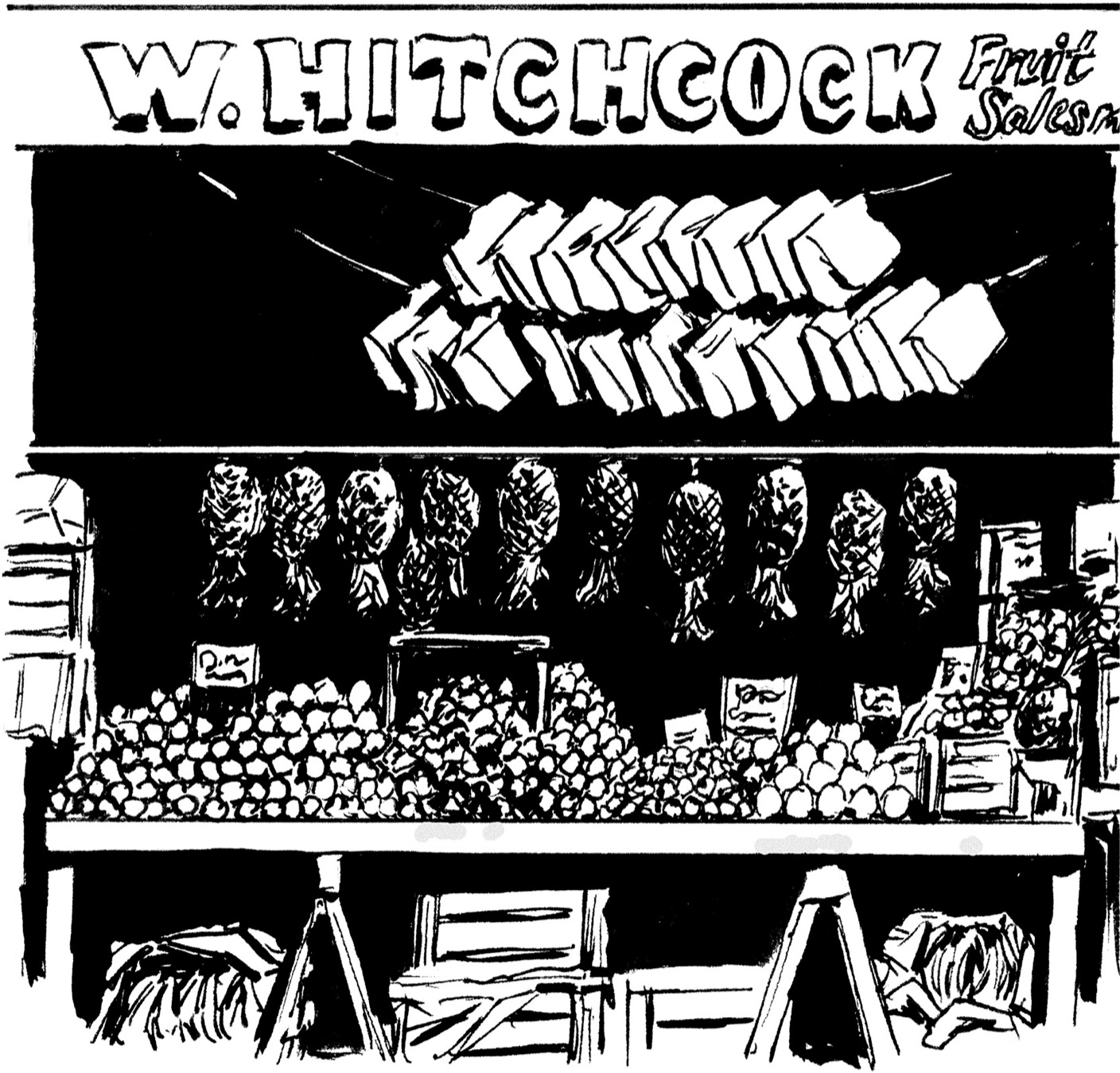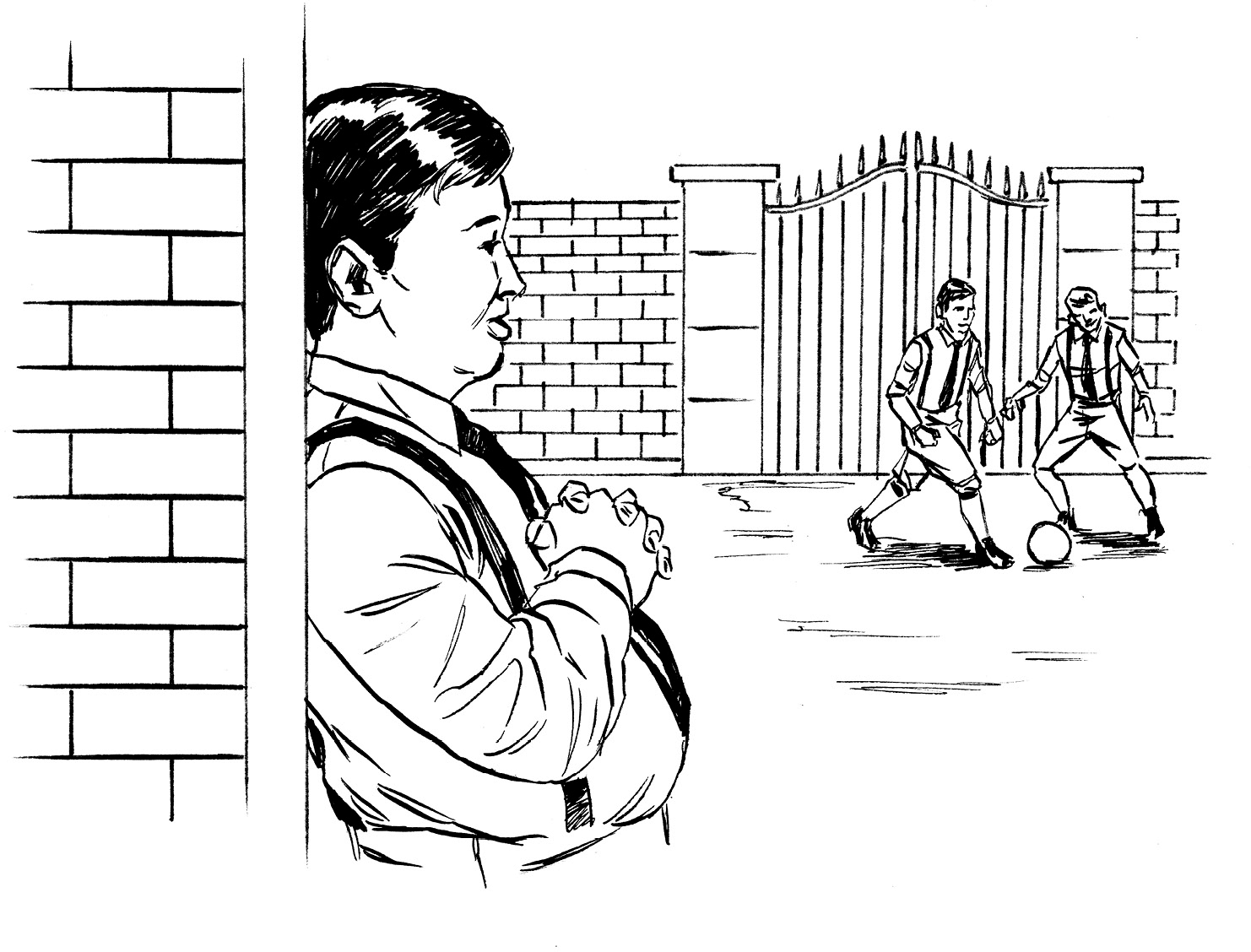Chapter 1
Call Me Hitch

Alfred Hitchcock was born on August 13, 1899. His brother, William, and sister, Nellie, were nine and seven. Alfred’s father, William, ran a grocery store and his mother, Emma, took good care of the children. The family lived above the grocery store. Life at 517 High Road was very orderly.


From an early age, Alfred liked to be alone. At family gatherings he stood off in a corner watching everyone else. Although there were other children who lived on his street, Alfred always played by himself or watched the other children play. For him this was more fun than being with other people. By the time he was eight, Alfred had ridden all the tramlines in London. He had taken the river steamers all the way to the mouth of the Thames River! He loved to ride streetcars and big ships and kept charts of all their routes. He also memorized train timetables—the hours of all the arrivals and departures. To Alfred, keeping track of the schedules was as exciting as reading stories.

Every evening Alfred’s mother called him to her room and asked him questions about his day. He confided in her about everything he had seen and heard.
At the time, movie theaters did not exist. But the Hitchcock family loved to go to the theater to see plays performed onstage. Alfred not only enjoyed the stories and the characters but also the way the lighting could make the audience react. He remembered a show where the ghostly looking villain stood under a spooky green light. He was amazed at how a simple lighting trick made a character seem more frightening.

It sometimes seemed as if much of young Alfred’s life was scary, too. One night he woke up and found the house empty. He went from room to room calling out for his parents. He didn’t know it, but they had gone for a walk. His brother and sister weren’t at home. Alfred was completely alone, and he was scared. He wandered around the empty house. There was “nothing but night” all around him. Later, his parents came home and found him in the kitchen crying.
In 1910 Alfred started school at St. Ignatius College, a Catholic school for boys. Alfred still liked to spend time alone. Years later, a classmate of his remembered him as a plump schoolboy leaning against the wall, his hands folded across his round stomach, simply watching the other boys.


The Jesuit priests who were his teachers were strict, and punishments were harsh. And yet, Alfred still broke the rules. One of his favorite tricks was to steal eggs from the school henhouse. He liked to throw them at the windows of one of the teacher’s homes. When the teacher asked him who did it, Alfred looked at the sky and shrugged. “I don’t know, Father. It looks like the birds have been flying overhead.”
This attitude earned him the nickname “Cocky” from the younger students. He hated the name almost as much as “Fred.” That was what his parents called him. So Alfred Hitchcock chose a nickname for himself, the one by which he would be known for the rest of his life: “Hitch.”
By the time he was fourteen, one of Hitch’s favorite pastimes was sitting in on criminal trials at the famous Old Bailey courthouse. He loved listening to the details of the court cases, especially murder trials. Whenever he could, he visited the Black Museum at Scotland Yard.



Alfred attended St. Ignatius College until he was fourteen. Then his parents sent him to the School of Engineering and Navigation. They hoped he would become an engineer, but he was much more interested in the latest entertainment to hit England—movies. There were four hundred movie screens in London by 1914, visited by eighty thousand people weekly. That wasn’t very much compared to the five million people who attended movies daily in the United States at that time. Movies hadn’t quite caught on yet in England, but they had captured the attention of teenage Alfred Hitchcock.
